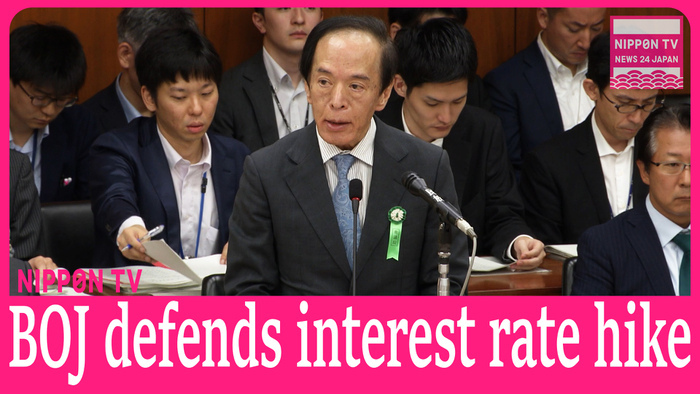BOJ chief Ueda defends central bank's interest rate hike in July

Ruling and opposition lawmakers have sought parliamentary deliberations while the Diet is not in session as the Bank of Japan's interest rate hike in July resulted in historic plunges in the stock market.
The largest-ever decline was seen in the Nikkei Stock Average after the BOJ raised interest rates for the second time this year in late July, and the development is referred to as the "Ueda shock."
S/ Nakagawa Hiromasa, Komeito lawmaker / There are opinions that the BOJ's dialogue with the market was insufficient. How does the BOJ see the latest situation of stock prices plummeting?
The July interest rate hike led to a rapid appreciation of the yen, and the Nikkei index saw its largest drop of more than 4,000 points on August 5.
In an attempt to alleviate the situation, BOJ Deputy Governor Uchida Shinichi said the central bank will not raise interest rates for the time being.
Stock prices then rose but have since been going through violent fluctuations.
Ueda explained at a session of the House of Representatives Committee on Financial Affairs on August 23 that the declines in stock prices came as concerns about the U.S. economic slowdown spread rapidly.
He said the interest rate hike in July was an appropriate action.
S/ Ueda Kazuo, BOJ Governor / As expected, wages began to rise broadly in the economy, and we made arrangements toward raising the short-term interest rate in July. We think it was appropriate.
The additional interest rate hike was seen as a surprise move to stop the depreciation of the yen which has had negative impacts on household finances.
But some see the development as resulting in confusion in the stock and foreign exchange markets.



